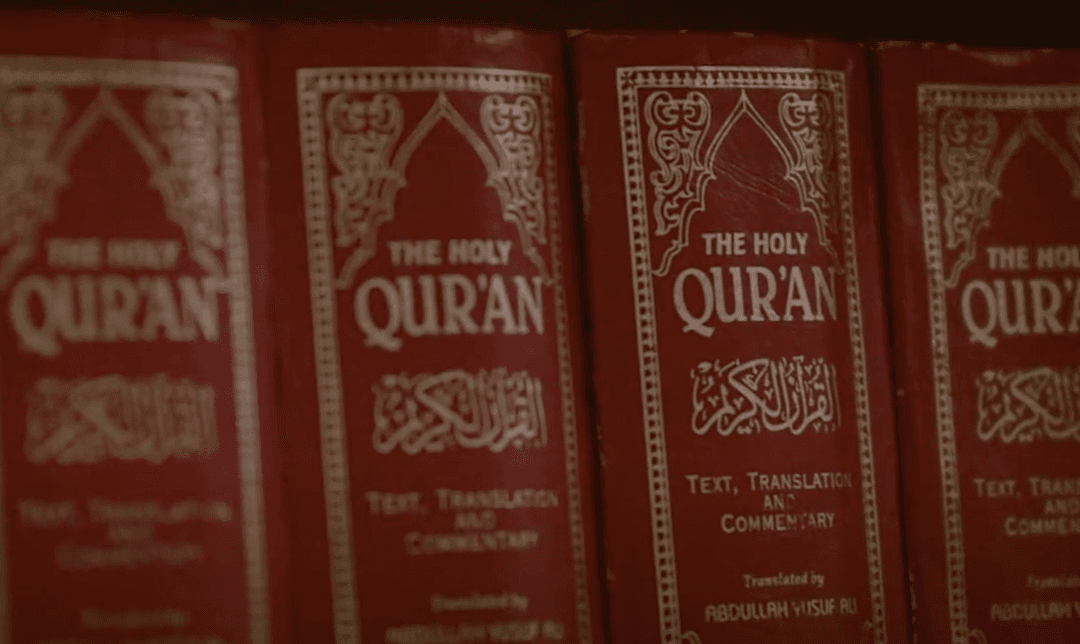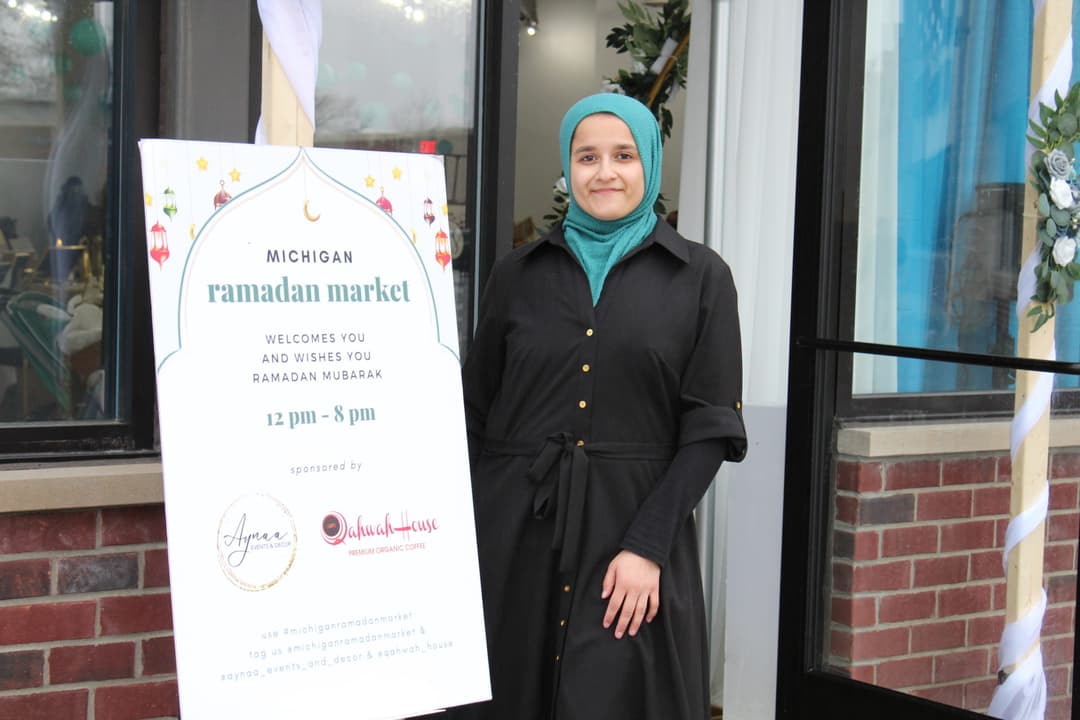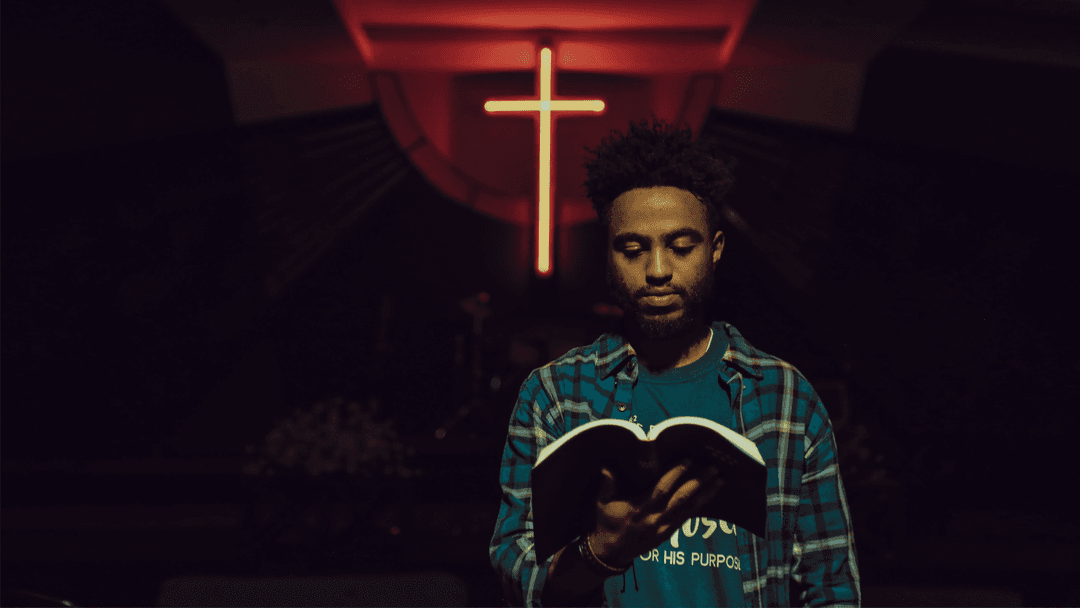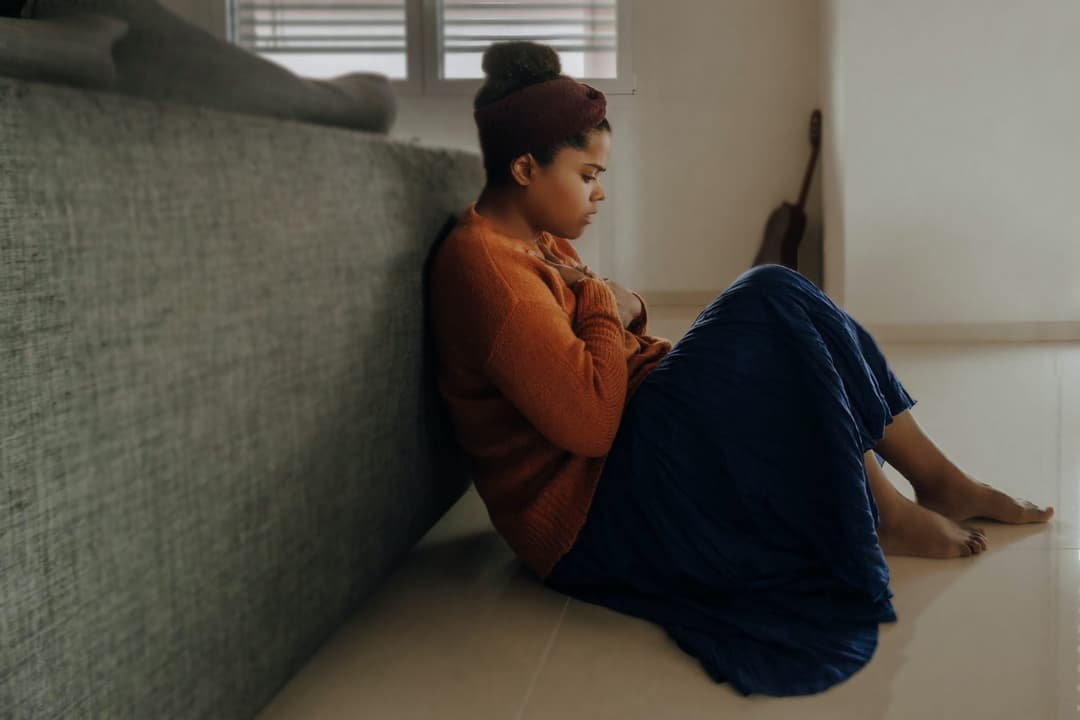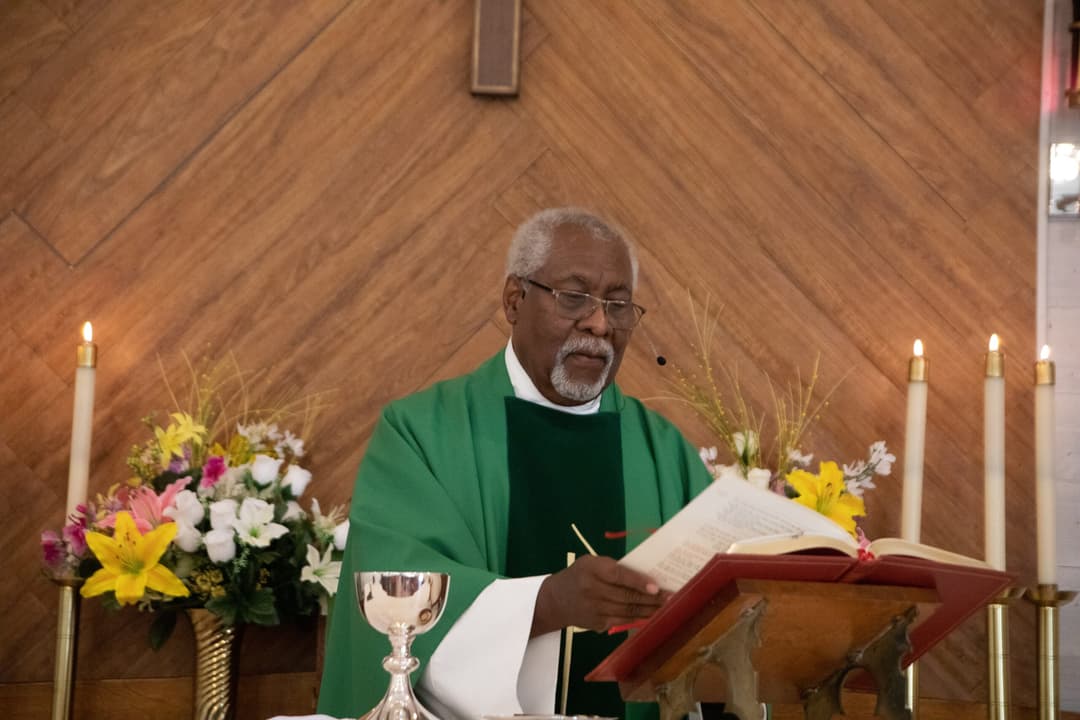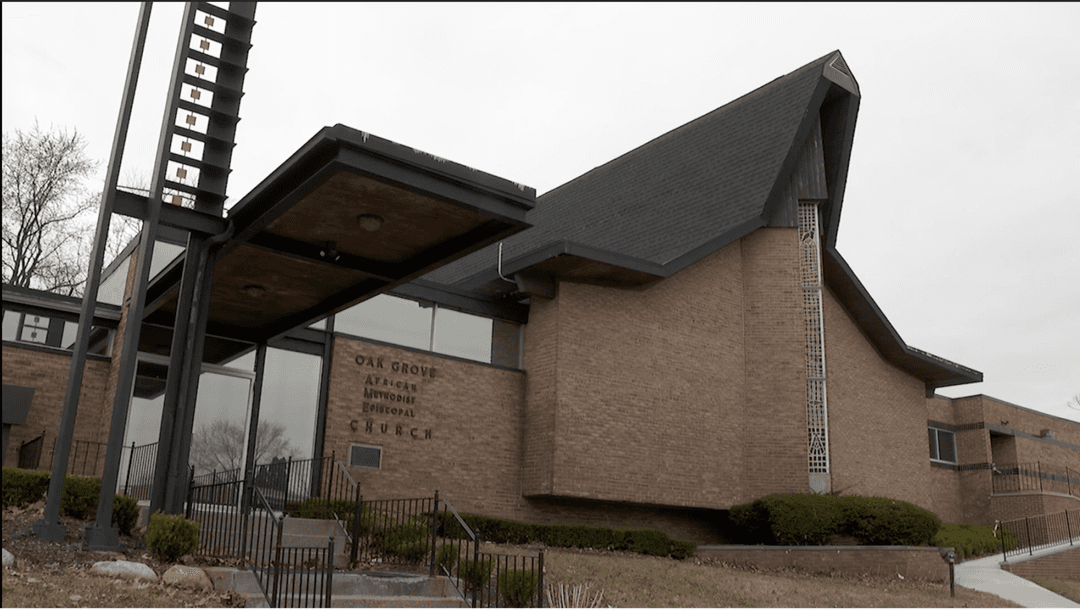Ramadan During COVID-19
Apr 24, 2020
Dima El-Gamal from the Muslim Unity Center and Imam Mustapha Elturk speak with Christy McDonald about the significance of the holy month of Ramadan to the Muslim community, how the community is addressing the challenges of social distancing, and the importance of faith during these uncertain times.
Watch Now:
[et_pb_video _builder_version=”4.14.9″ _module_preset=”default” src=”https://www.youtube.com/watch?v=qSHPkSBktzk&feature=youtu.be” hover_enabled=”0″ sticky_enabled=”0″]
Full transcript:
Christy McDonald: One of the holiest months of the year for Muslims begins on Thursday night. And that is Ramadan. So joining me now to talk a little bit about that is Dima El-Gamal. And she is a community member of the Muslim Unity Center.
Dima, hi.
Dima El-Gamal, Muslim Unity Center: Christy, thank you for having me.
Christy McDonald: It’s good to see you. And also with us is Imam Mustapha Elturk from the Islamic Organization of North America. Imam Elturk, it’s good to see you as well.
Imam Mustapha Elturk, Islamic Organization of North America: Good to have you having me on your show. Thank you so much for inviting us.
Imam, if you could start off explaining to people exactly what Ramadan is.
Imam Mustapha Elturk: Ramadan is the ninth lunar month of the Islamic calendar and it is a month of fasting. God Almighty says in the follow on all you who believe fasting is prescribed to you as it was prescribed to those who came before you, so you may remain conscious of God. So, it’s a month of spirituality. It’s a month of fasting where Muslims abstain from food and drink from dawn until sunset. And that goes on for 29 or 30 days depending on the moon, because we follow the lunar calendar.
So, it’s a very spiritual month. It connects the families together, the community together, and it has dual aspects. Fasting during the day and also coming together in community services such as the evening, concrete day, congregational prayers, we call them Taraweeh. So that the something that connects the community spiritually in the mosques in the evening where an imam is leading the community throughout the whole entire month nightly reciting the whole entire hour.
Christy McDonald: So, Dima, how does COVID-19 change the way the community will come together this month or whether there be certain things being done?
Dima El-Gamal: Well, thank you for asking that question, Christy. It’s actually–it’s emotionally overwhelming to even think about Ramadan coming, even though that we saw that coming with our friends, the Christians and the Jewish communities recently celebrating holidays.
And just to think about it, coming in a couple of days, it’s overwhelming.
But still, the social distancing being in place, the Muslim community has come up with a lot of activities and a lot of spiritual activities, as well as social activities that take the social distancing from the physical spaces into virtual spaces. What I mean by that is a lot of activities that take place in Ramadan, such as prayers, such as lectures, where people come together typically and Ramadan in the mosque.
They have been taken to the virtual space.
So, for example, lectures and recitation competitions and everything, you know, has been taken to the spiritual space and youth activities have been taken for the virtual space. I can’t tell you that they are going to be the same. It’s never going to be the same because the physical interaction is very essential in Ramadan. But it is a substitute and it is a way to keep the community connected virtually.
And a lot of activities are meant to our youth and our adults as communities connected with the mosque, connected spiritually. And that’s what we’re doing.
Christy McDonald: Imam Elturk, what are some of the community members telling you about the difficulties this time and feeling maybe a little disconnected from each other, but still having that that route of faith?
Imam Mustapha Elturk: Christy, we have been getting calls and people actually wanted to know if we are congregating this long because it’s such a spiritual and meaningful month to a lot of community members. Unfortunately, because of the COVID-19 that not only have we suspended their Fridays congregational prayers and the regular daily prayers. We are suspending the nightly during the month of Ramadan, the nightly prayers as well. So, unfortunately, we will not be able to hold the nightly congregation of prayers and the community dinners that we normally offer the community in the evening.
We call it Iftar–a breaking the fast dinner. So that’s not going to happen this year for obvious reasons because of the health crisis. However, we are encouraging the people to do whatever they can within their families. We’re encouraging social distancing. We are encouraging families to connect with their extended families through the social media and whatever our smartphones apps provide for our communities.
However, we are connected with them through virtual livestream feeds with lectures. I will be delivering a nightly lecture going over the Quran for the community through YouTube and Facebook and Zoom and other resources.
Christy McDonald: It’s when we are faced with times like this where we we don’t know what the future holds, where things change from day to day. Dima, how important is it for us to to hang on to our faith, our spirituality, to still do the rituals within our own homes that help bring us some peace?
Dima El-Gamal: Faith plays a huge role at these times. It is very important to maintain the relationships and it comes within the family where the family ties pray it –play a big role nowadays.
Our family itself, and I can speak on the family, we aren’t we started playing the roles where we have plans to have our own congregational prayers because we cannot celebrate or have the prayers at the mosque. So, we started having plans to have our own Taraweeh prayers together. We are planning on having our own Iftar. We are planning on having our own supplications.
Our kids start talking to us about we have to accept what calmness and faith is.
You know, with faith, with testing comes ease and with with every hardship comes ease.
And the faith, the belief that just like any other faith, it is very, very important to maintain that faith in God and that there is always hope.
And the love from God will get us through this. And together we will get through this unfortunate circumstance.
Christy McDonald: Imam Elturk, this must be some of the most amazing times that you’ve had to be a faith leader. How would you describe what we’re facing right now and what you’re able to to tell people?
Imam Mustapha Elturk: Yeah, Christy, this is unprecedented. We’ve never thought anything like this will happen, unfortunately, to the whole entire world. Did that happen? And as Dima alluded to, this is what we call divine decree or divine destiny. We accept it as it is. And yes, as an imam, it is very difficult to console people who are so very much attached to that mosque, attached to the community. But we have to be resilient and we have to take things with fortitude, be patient and endure this time.
This is, like I said, unprecedented. And hopefully it will be the last time humanity ever experiences something like that. But during that time, we need to support one another, strengthen one another, spiritually and otherwise. Our community is doing really great things with other community members. For example, the Muslim community, the Michigan Muslim Community Council has contributed to many mosques where we typically during Ramadan, we feed the poor people.
They supplied us with food baskets and we have distributed all the food baskets that they had allotted to our organization just to show you the demand. There are quite a few people who are in need and in such dire time. Thank God the community is coming together and showing love and solidarity toward one another.
Christy McDonald: And tell us, Imam, at the end of Ramadan, there is a celebration.
Imam Mustapha Elturk: Oh, don’t ask me about that. Yes, there is a celebration. And I don’t know really what to do yet. And my message to the community, I did say that the country, the congregational prayers as well as the communal dinners will be suspended and perhaps the Eid, we call it the Eid, the Eid al-Fitr, which means the festival of breaking the fast. And that happens at the end of Ramadan on the first day of Shawwal the month that follows Ramadan. So my word perhaps is given some hope, which I doubt, honestly.
Let’s be realistic. I do not think we can congregate like we did before in their aid. They typically brings thousands of people in the community together to celebrate. And even if we go back to the work place next month, as far as they are planning to, I don’t think we will be able to congregate more than 50 people. So I doubt if we will have this communal festival this year.
Christy McDonald: Dima, it really shows that no matter what religion that we practice, that we have all had to figure out how to have our own celebrations and and our own ritual in this time of change. Would you say that that is the one thing that we’re all seeing and understanding these days?
Dima El-Gamal: Of course, Christy, we are all one. Humanity is always a diverse and created diverse for a reason. At the end of the day, we all share the love of God and we all share the faith in God. And at the end of the day, this is a change that we are all experiencing one way or another.
However, we all see the positive out of it. I hear it from all my friends of all faiths. We all came together. We we all as families, even, you know, like my kids. I got to know them more. Whether we like it or not, we are getting together as communities. And, yes, we will get through it. And it is it is a sad situation. But even Earth, today’s Earth Day and Earth is breathing more and breathing better.
And we hope that this holy month is going to come out and we all as a humanity will come out from it with a better and a much, much more love to each other. And hopefully we will be relieved from this unfortunate situation.
Imam Mustapha Elturk: If I may jump in here for a second. I did say to my people at the mosque. If anyone has benefited out of this COVID-19 is our mother earth because of the pollution. And of that all factories have suspended their production and so on and so forth. On another point. I’m really hopeful that another benefit out of this. We have to be optimistic and hopeful is that the families will emerge stronger, God willing, after this COVID-19, you know, with the hustle and bustle of life. And everyone is so busy. If any of you are any more, they text you from their bedroom. This is going to change how families work and how families, you know, communicate with one another within the family. So I’m hoping that hopefully after this COVID-19, the families will emerge a lot stronger.
Another thing I would like to mention here is that in terms of the larger community, you know, I am on the faith committee of the People’s Water Board. And believe me, everybody is working so hard to help and support other people. We’re working in Detroit to provide water to those residents whose water had been shut off. The governor had a mandate to turn on back the water to the residents. Unfortunately, because of the time from the time the water was shut off until the water was restored, the pipes have corroded among other things. So, the water is not safe for them to drink. And we’re helping them by providing gallons of fresh water for drinking and cooking. So, in this COVID-19, you see the larger community coming together and supporting regardless of their faith. So, we have on the board of many different faiths tradition that is working together to help and assist the people.
Christy McDonald: Imam Mustapha Elturk, thank you so much. And Dima El-Gamal, thank you so much for joining me and giving us a little bit of an education and really more of the conversation of how we’re all changing with this. Thank you for your time today.
Imam Mustapha Elturk: Thank you, Christy, for having us on.
Subscribe to One Detroit’s YouTube Channel & Don’t miss One Detroit Mondays and Thursdays at 7:30 p.m. on Detroit PBS, WTVS-Channel 56.
Catch the daily conversations on our website, Facebook, Twitter @DPTVOneDetroit, and Instagram @One.Detroit
View Past Episodes >
Watch One Detroit every Monday and Thursday at 7:30 p.m. ET on Detroit Public TV on Detroit Public TV, WTVS-Channel 56.
Stay Connected
Subscribe to One Detroit’s YouTube Channel.
Catch the daily conversations on our website, Facebook, Twitter, and Instagram @detroitperforms
Related Posts
Leave a Reply
Your email address will not be published. Required fields are marked*




